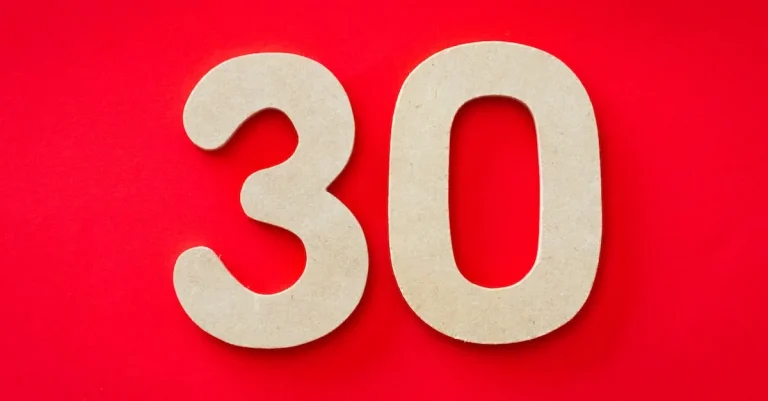Power is a complex concept that has intrigued humankind since the dawn of civilization. At its core, power represents the ability to influence and control people, events, and the world around us.
If you’re short on time, here’s a quick answer to what the spiritual meaning of power is: Power has a spiritual meaning when it is used in service of others rather than for selfish interests. True spiritual power comes from inner wisdom, higher purpose, and connection to the divine.
Defining Power
The Concept of Power
The concept of power refers to the capacity to influence others and control resources. Power allows individuals or groups to make decisions, enforce their will, and bring about change. As the saying goes, “Knowledge is power.
“ Understanding different types and aspects of power is key to wisely exercising it.
Types of Power
There are several main types of power:
- Coercive power involves forcing others to do something against their will through threats or violence.
- Reward power provides positive incentives to gain compliance from others.
- Legitimate power stems from formal authority roles sanctioned by society, like parents, bosses, and governments.
- Expert power draws on recognized expertise to influence others.
- Referent power arises from charisma, interpersonal skills, and the desire of others to feel connected.
- Informational power comes through controlling information and channels of communication.
While some types of power can be used responsibly, coercive power in particular tends to undermine human dignity when misused.
Power Dynamics
Examining power dynamics involves looking at how power is distributed within relationships, systems, and societies as a whole:
| Concentrated Power | When power is concentrated in the hands of a single authority figure, abuse and corruption becomes more likely without checks and balances. |
| Distributed Power | When power is distributed among different people and groups, they can keep each other accountable. |
Inequalities in power access along gender, racial, and socioeconomic lines enable privilege for some while disadvantaging others. Working to equalize power can help create a more just world.
As Lord Acton fittingly stated, “Power tends to corrupt; absolute power corrupts absolutely.” This points to the need for self-awareness when wielding power to avoid abusing it.
The Pitfalls of Power
Corruption
As the old saying goes, power tends to corrupt and absolute power corrupts absolutely. When people gain positions of power, they can often lose their ethical grounding and give in to greed, arrogance, and other vices.
Lord Acton’s warning from 1887 still rings true today: “Power tends to corrupt, and absolute power corrupts absolutely. Great men are almost always bad men…”
One major downfall is the temptation towards corruption. A 2022 study from Transparency International found that over 50% of people surveyed across 20 countries believed corruption had increased in their government, with power and money seen as inextricably linked.
Without humility and integrity guiding one’s steps, the sweeping authority of power can lead down a slippery slope.
Manipulation and Coercion
Wielding power, influence, and control over others also opens the door to manipulation and coercion to serve one’s own ends. From political strongmen distorting facts to corporate executives pressuring employees, commanding power can foster an environment where getting what you want becomes more important than ethical considerations.
As Holocaust survivor Viktor Frankl poignantly wrote: “The most dangerous leaders are those who can infect their followers with fanaticism and intolerance, manipulate others, and pursue goals with uncompromising, ruthless determination.
“ Without empathy, responsibility, or wisdom guiding the use of power, it becomes far too easy to treat people as mere tools to further your own ambitions.
Loss of Humility and Compassion
Finally, with greater power often comes greater pride. When one rises in status and authority, it becomes tempting to see oneself as above others. In a 2022 survey, over 60% of leaders agreed that “power isolates people from reality.”
| People surveyed | Percentage agreeing |
|---|---|
| Middle managers | 67% |
| Senior executives | 61% |
This isolation and self-focus that accompanies power often corresponds with a reduced ability to empathize and care for the people under one’s authority. Without conscious effort, power’s tendency to inflate the ego and confirm authority can slowly eat away at compassion – a dire loss for any leader.
The Spiritual Dimension of Power
Power to Uplift Others
True spiritual power lies in the ability to uplift and empower those around us. As Gandhi famously said, “The true measure of any society can be found in how it treats its most vulnerable members.” When we use whatever influence we have to lift up the downtrodden, give voice to the voiceless, and bring more light into the world, we tap into an immense inner power.
Service is one of the key pathways to developing spiritual power. When we take the focus off ourselves and become a force for good in the lives of others, we align ourselves with higher purpose and wisdom. We realize that we are all connected, and that another’s suffering is also our own.
The more we give, help, console and inspire, the stronger our souls become.
Inner Power and Wisdom
Beyond service, true spiritual power also derives from cultivating wisdom within. As the Buddhist teacher Thich Nhat Hanh put it: “The power of understanding can overcome any kind of fear. With understanding, you have enough power to transform the situation.”
The journey of personal growth teaches us where our real strength lies – not in status, riches or worldly influence, but in presence, insight, empathy and consciousness.
When we develop ourselves spiritually by releasing ego and connecting to our higher nature, we gain an unshakeable inner power and resilience. Hardships that may once have defeated us can now be viewed as opportunities for learning.
Material things hold less sway over someone grounded in their true spiritual identity. Our vision expands, as does our ability to transform ourselves and uplift others.
Power in Alignment with Higher Purpose
Ultimately, spiritual power means living in alignment with higher purpose – contributing our unique talents to the evolution of humanity, so that we progress in wisdom rather than repeating the mistakes of history.
It means using our influence in service of truth rather than deception, freedom rather than oppression, unity rather than division.
The outer power structures of our world are often dominated by those lacking in spirituality and higher purpose, which has led to exploitation, violence, and the threat of climate catastrophe. The most powerful course of action is therefore to develop our inner power – through practices like meditation, reflection and service – and translate that into positive influence wherever we have the opportunity.
If we each align to higher purpose in this way, our combined energy can transform even the greatest evils of civilization.
Cultivating Spiritual Power
Cultivating spiritual power requires dedication and discipline to master the self, serve others with compassion, and connect to the divine. By developing these key areas, we open ourselves up to new depths of spiritual understanding, wisdom, and transformation.
Self-Mastery and Discipline
Self-mastery entails managing our thoughts, emotions, and behaviors with intentionality and conscious awareness. This requires discipline developed through regular spiritual practices like meditation, prayer, contemplation, or journaling.
Through these practices, we gain more control over the self and unlock access to our inner spiritual power.
Research shows that long-term meditators have improved self-awareness and regulation [1]. Daily prayer or contemplation also trains our minds to regulate attention and cultivate positive mental states.
And regular journaling enables deeper self-reflection and integration of spiritual insights into daily life.
Servant Leadership
Another key aspect of spiritual development is selfless service to others. Known as “servant leadership,” this entails leading through compassion and attending to people’s needs before our own. Spiritual traditions across the world espouse service as a path toward diminishing the ego and growing in wisdom.
Modern research affirms that volunteering and helping others boosts personal growth and life satisfaction. Studies show that “helper’s high” is correlated with physical and mental health benefits [2]. Thus, servant leadership allows us to cultivate spiritual power through humility, self-transcendence and altruism.
Connecting to the Divine
While personal growth through self-mastery and service is crucial, connecting to the Divine is the ultimate wellspring for spiritual development. Contemplative practices allow us to transcend the ego and directly perceive absolute reality in mystical states of consciousness.
Research on psychedelics and entheogens reveals that mystical-type experiences occasioned by these substances are rated as highly meaningful and spiritually significant [3]. Such profound connectivity fosters enduring positive changes in values, attitudes and behaviors.
Thus, the highest expression of spiritual power comes from anchoring ourselves in the ground of all Being. This lends an unshakeable peace, joy and wisdom to our lives that uplifts and transforms our very way of being in the world.
Wielding Power Wisely
With Integrity and Ethics
Wielding power with integrity means adhering to strong moral principles and values. Leaders should act truthfully, keep their word, and refrain from deception or corruption. As Mahatma Gandhi wisely stated, “The day the power of love overrules the love of power, the world will know peace.”
Leaders with integrity build trust, inspire action, and gain influence. Studies show that ethical leaders tend to have more committed and productive teams. For example, a meta-analysis by Cornell University found integrity to be the most essential leadership virtue.
With Equity and Justice
Exercising power equitably means distributing resources fairly and justly. As Michelle Obama declared, “There is no magic to achievement. It’s really about hard work, choices, and persistence.” True leaders ensure all groups have the opportunity to succeed through fair policies, processes, and treatment.
Data shows more inclusive institutions enjoy greater stability and prosperity. For instance, the World Economic Forum analysis found that social inclusion initiatives in Europe could boost GDP by billions within a decade. Ultimately, leading with equity and justice moves society forward.
With Restraint and Humility
Wielding power requires knowing when not to use it. As Abraham Lincoln advised, “Nearly all men can stand adversity, but if you want to test a man’s character, give him power.” The restraint to avoid overreach and undue force separates enlightened leaders from destructive autocrats.
Power should also be tempered by humility – the ability to recognize one’s limits. As C.S. Lewis wrote, “Humility is not thinking less of yourself, it’s thinking of yourself less.” The most admirable leaders focus outward on organization goals rather than inward on personal glory.
Conclusion
In the end, power only has spiritual meaning when it aligned with love, compassion, and service to others.
True spiritual power comes from within, through cultivating wisdom, purpose, and connection to the divine force that connects us all. When grounded in these principles, power can be a tremendous force for good.






